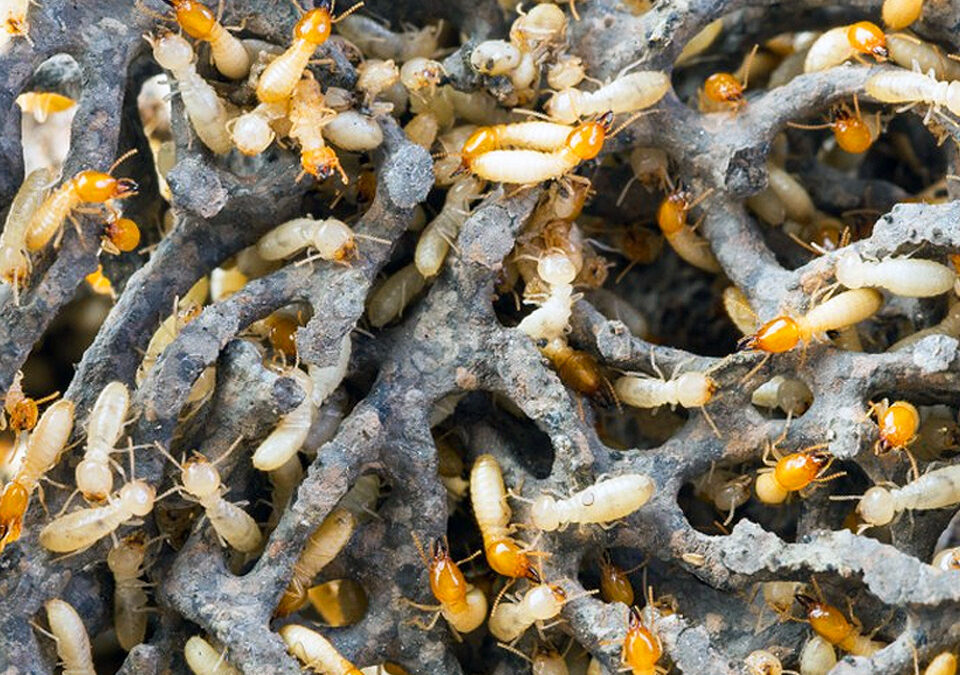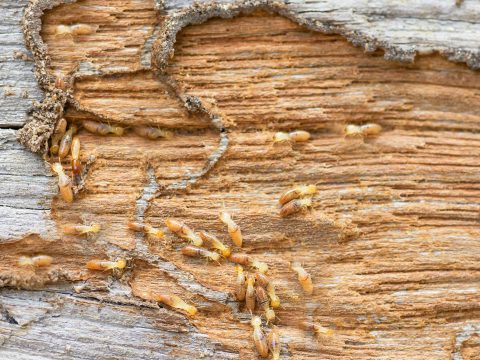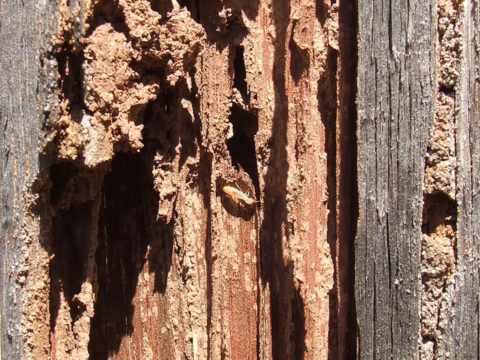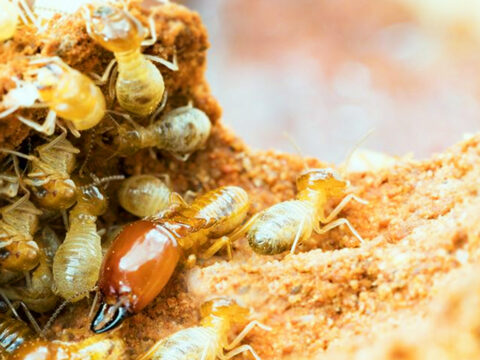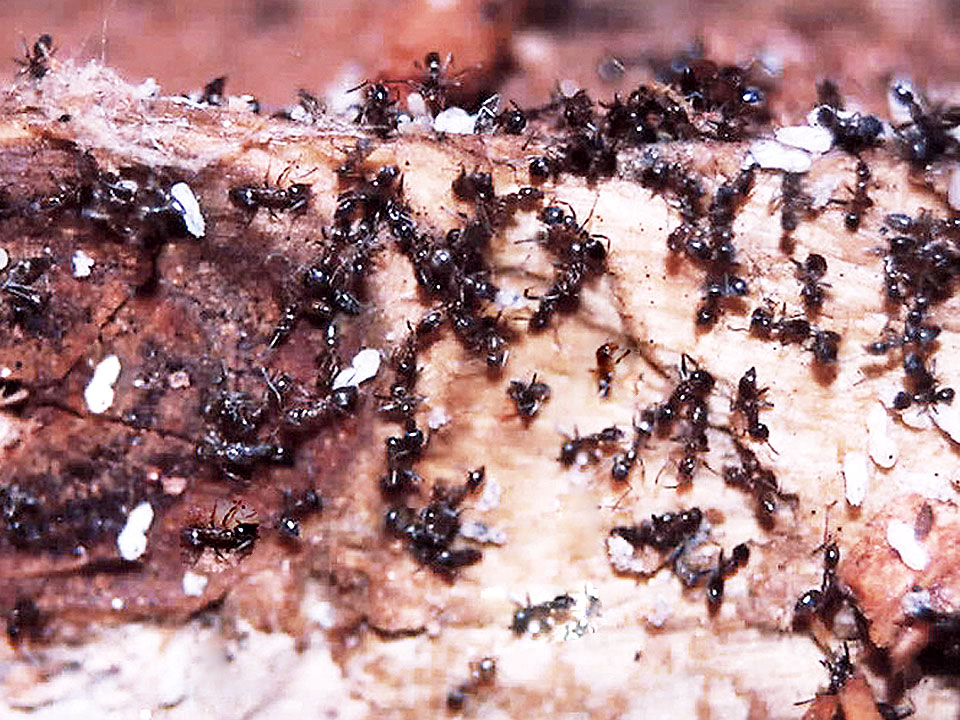
Can Ants Kill and Eat Termites?
February 16, 2021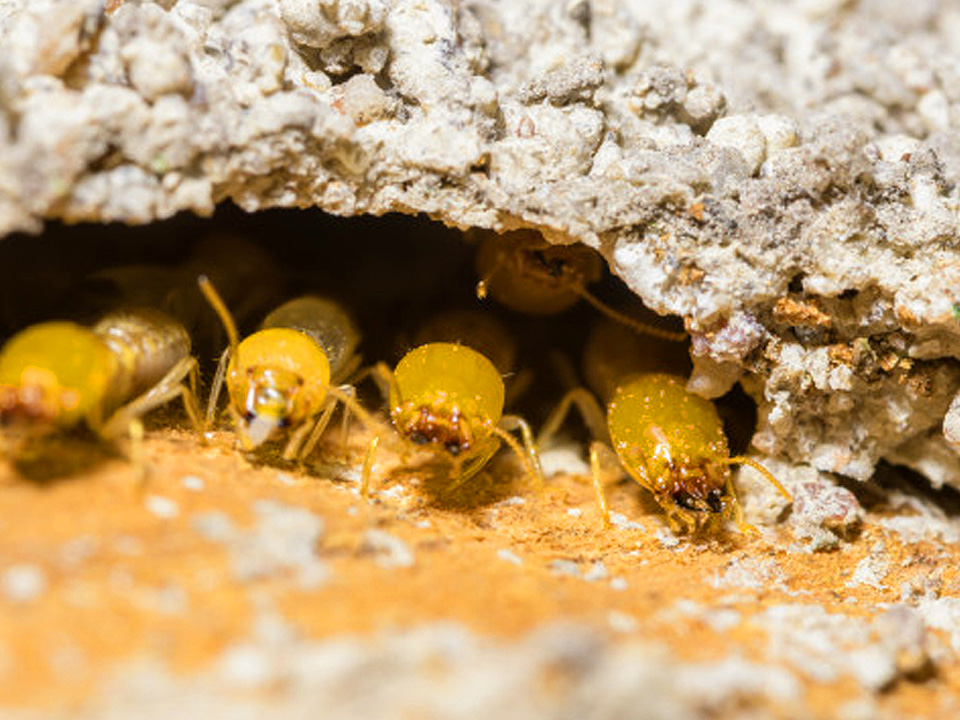
Can Termites In Your House Make You Sick?
April 21, 2021Before answering the question of whether you need to tent your house to kill subterranean termites, you should first determine exactly which type of termite species you are dealing with.
The two categories of termites are subterranean termites and drywood termites. Subterranean termites got their name because they survive by living in the ground in colonies, while drywood termites nest inside the wood they are infesting.
In buildings, subterranean termites can be found entering structures around cracks, cement expansion joints, plumbing penetrations, and other similar areas that give them access to the building structure. Also, any wood that is in direct contact with the soil is a valuable food source for subterranean termites. These insects travel to their target, burrow into the soft, moist wood at the base of a building (or trees, wooden fences, etc.) to feed, and then go back to the soil to feed it to their colony.
In addition, adult reproductive termites, commonly known as swarmers, can sometimes enter indoors through open windows or doors, therefore, finding termite swarmers in your home is a reliable sign of infestation.
Subterranean termites are typically identified around and under the foundations of a house. Their colonies may reach even up to 1 million individuals foraging in various directions. On the other hand, drywood termite colonies are generally much smaller than subterranean termite colonies. As a result, subterranean termites are much more dangerous than drywood termites because the amount of property damage they cause is more significant.
It’s worth doing some research regarding the types of termites prevalent in your area to know what prevention and, ultimately, treatment methods will be most effective.
Having predominately drywood termites, the methods that should be applied will be different than if you have subterranean termites.
So, if you’re sure that you’re battling subterranean termite infestation, finding the right treatment is vital for maintaining the structural integrity, aesthetic appeal, and overall value of your home.
Thus, you may be wondering whether your house needs to be tented for subterranean termites, or are there any other alternatives to eliminate the infestation.
Do You Tent for Subterranean Termites?
Typically, the use of fumigation methods (i.e. tenting) is essential for treating drywood termites that reside within the actual wooden structure, whereas in-soil chemicals, barriers, and baiting systems aim to target subterranean termites that live in the soil surrounding the house.
House tenting is not being used to eliminate subterranean termites as this pest control method only kills off colonies of drywood termites. Subterranean termites enter a house from below ground and tenting is ineffective at reaching their underground tunnels. Instead, separate treatments are required to create a barrier between their nest in the ground and the house structure.
So, since you do not tent for subterranean termites, they can be controlled using either of the most commonly used methods:
Liquid Termiticides –
Typically, the liquid termiticide treatment is done underneath a house and around the entire exterior of the house covering all areas where termites might gain access.
The application of conventional liquid termiticide is to create a chemical barrier between the termites in the soil and the building structure above.
This treatment can also affect those termites present in the house by preventing them from successfully returning to the soil which, in most cases, will result in these termites dying of dehydration.
Repellent Termiticides –
Repellent termiticides are fast-acting nerve poisons that are highly toxic to termite colonies but have little or no effect on humans and pets. The termiticide is so repellent to termites foraging in the soil that they will avoid coming into contact with the substance and will forage somewhere else. Thus, an effective chemical barrier is created to prevent termites from entering the structure and causing further damage.
However, termites have learned to detect these chemicals and, as a result, are likely to move to any areas underneath the house that have not been properly protected.
Termite Baiting Systems –
Termite baits target the termites themselves and aim to suppress or eliminate whole termite colonies currently living in the soil.
The baits function according to the natural feeding and social habits of these insects and incorporate slow-acting toxicants or growth regulators into termite food. The poisons are distributed throughout the colony by foraging worker termites who share their food with other colony members infesting the house.
However, the main disadvantage of baiting systems is the fact that it can take several weeks or even months for the pests to discover baits. Since termites eat constantly, significant damage to a property is likely to happen if the baits are not discovered in a timely fashion.
Non-repellent Termiticides –
The main advantage of the application of non-repellent termiticides is that these substances cannot be detected by termites that are tunneling into the soil.
The non-repellent termiticides serve the same purpose as baits but the pests can come into contact with these products more quickly than they are to discover baits.
Termites do not die on contact but the products allow them to live long enough (they usually survive up to 90 days after being exposed) to deliver and share the chemicals to other members of the colony.
How Our Professionals at Chem Free Exterminating Can Help?
Having an experienced and knowledgeable pest control specialist perform a comprehensive termite inspection is one of the best things you can do to create an extensive and effective termite plan for both eradicating termites that are already foraging indoors and for deterring new colonies from setting up camp.
Working with our Chem Free Exterminating technicians will help you avoid unnecessary costs of implementing treatments that are not appropriate for the nature of the infestation you’re experiencing. Feel free to contact us today for further information or a free inspection if you’re seeing evidence of termites on your property.

